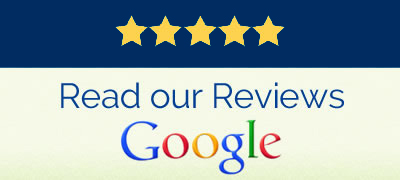
💡 The Shocking Truth About Employer-Sponsored Life Insurance Plans!
Shield Insurance Blog | Employer-Sponsored Life Insurance | Life Insurance | Contact Shield Today!

When it comes to financial protection and security, life insurance is an essential component of any comprehensive personal finance plan. It provides a safety net for your loved ones in the event of your untimely demise, ensuring that they are not burdened with financial hardships during an already difficult time. Many employers offer life insurance as part of their employee benefits package, but is this coverage enough?
Employer-Sponsored Life Insurance is a great perk!
While employer provided life insurance can be a valuable perk, it is important to evaluate whether it adequately meets your needs. Additional coverage may be necessary to ensure that your loved ones are fully protected. Let’s take a closer look at the factors to consider when assessing the sufficiency of your employer sponsored life insurance plan.
Life insurance benefits provided by your employer are typically based on a multiple of your annual salary. For example, if your employer offers a plan that provides coverage equal to two times your salary, and you earn $50,000 per year, your life insurance coverage would be $100,000. While this may seem like a substantial amount, it may not be enough to cover all of your financial obligations and provide for your family’s future needs.
One important consideration is your current financial situation. Do you have outstanding debts such as a mortgage, car loans, or credit card balances? These debts can quickly add up and become a burden for your loved ones if they are left to shoulder the responsibility. Additional life insurance coverage can help ensure that these debts are paid off, providing your family with a clean slate and financial stability.
Is Your Employer-Sponsored Life Insurance Adequate?
Another factor to consider is your family’s future financial needs. Will your spouse or children need financial support for education expenses? Do you have aging parents who may require assistance? These are important questions to ask when evaluating the adequacy of your life insurance coverage. Additional coverage can provide the necessary funds to meet these future needs and provide your loved ones with a secure financial future.
It is also important to consider the cost of living in your area. If you live in a high-cost city or region, the amount provided by your employer-sponsored life insurance plan may not be sufficient to cover your family’s expenses. Additional coverage can help bridge this gap and ensure that your loved ones can maintain their current standard of living.
When evaluating your life insurance options, it is important to compare different insurance plans and providers. Shield Insurance Agency represents over 40 insurance companies, offering a wide range of coverage options to meet your specific needs. By working with an independent insurance agency like Shield Insurance Agency, you can access multiple quotes and find the best policy for your unique situation.
To determine the adequacy of your life insurance coverage, it is important to assess your current financial situation, future needs, and the cost of living in your area. By considering these factors and comparing different insurance options, you can ensure that your loved ones are fully protected in the event of your passing.
If you have any questions or would like to explore additional coverage options, contact Shield Insurance Agency at (616) 896-4600 for a free quote today or start the quoting process by visiting this LINK and an agent will be in touch soon. Don’t leave your family’s financial security to chance – take the necessary steps to provide them with the protection they deserve.
Recent Blog Articles by Shield Insurance Agency
- Navigating Michigan Auto Insurance: Understanding Collision Coverage
- Russ Cook Runs 385 Marathons In 352 Days, Becomes First Man To Run Entire Length Of Africa
- Life Insurance Demystified: Whole Life vs. Term Life – Which is Right for You?
- Restaurant’s Quest For Mystery ‘ French Fry Girl ‘ Ends In Heartwarming Discovery
- Shield Insurance’s Roadmap to RV Insurance in Michigan: What You Need to Know





























































